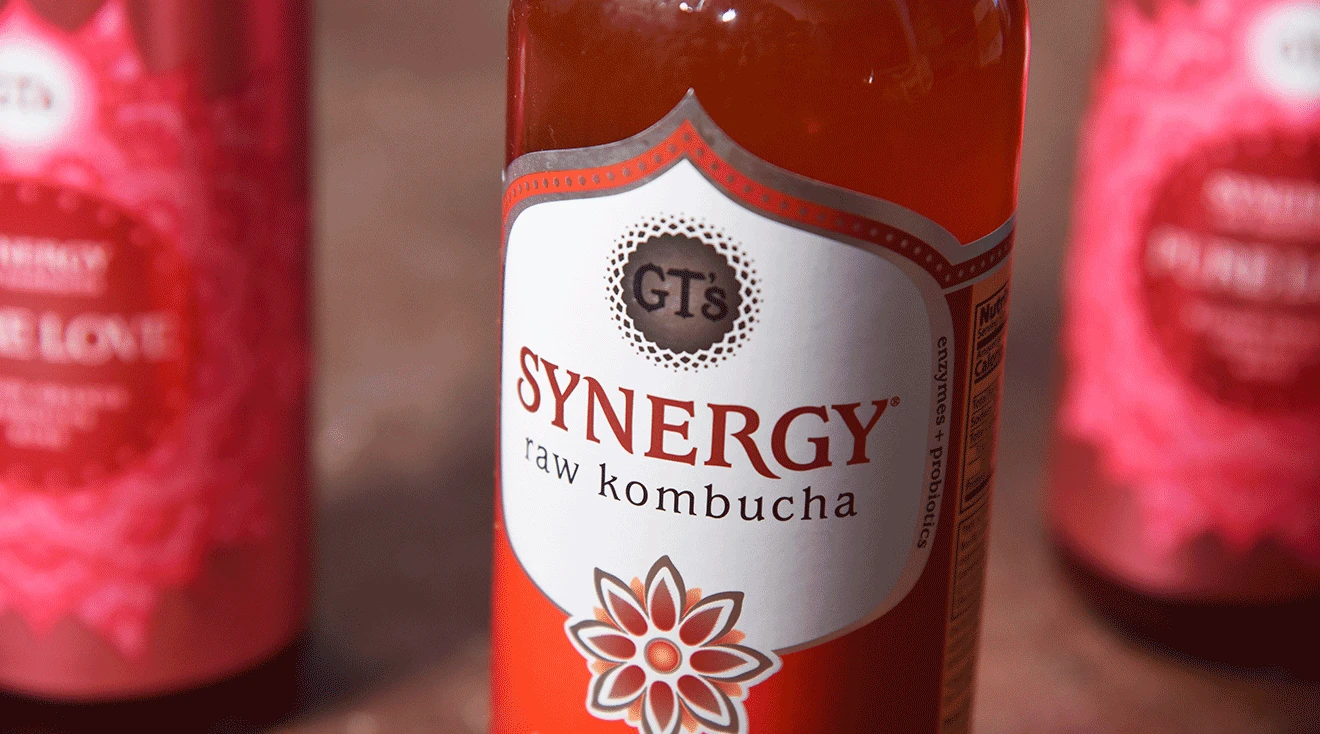Can You Drink Kombucha While Pregnant?
While you’re likely aware that drinking alcohol while pregnant is off-limits and that you should curtail your caffeine intake, it’s a bit less clear whether you should avoid certain other foods and drinks. For example, can you drink kombucha while pregnant—or should you take a pass on this fizzy drink? Experts say there are a few risks to consider when it comes to drinking kombucha during pregnancy. Here’s what to keep in mind, plus a list of safer alternatives.
Kombucha is a fermented tea beverage, explains Jessica Cording, MS, RD, CDN, a dietitian, health coach and author of The Little Book of Game Changers: 50 Healthy Habits for Managing Stress & Anxiety. The drink is made with black or green tea, along with sugar and active yeast. That yeast changes the sugar as it ferments, “creating trace amounts of alcohol,” Cording adds.
There’s not a lot of robust data on drinking kombucha while pregnant. “However, looking at the method on how it’s prepared and its ingredients, people who are pregnant or breastfeeding, or who have weakened immune systems, should avoid kombucha products,” says Jessica Shepherd, MD, MBA, FACOG, an ob-gyn and minimally invasive gynecologic surgeon in Dallas.
Kombucha contains ethanol, a form of alcohol, explains Andrei Rebarber, MD, director of the Division of Maternal Fetal Medicine at Mount Sinai West and president of Maternal Fetal Medicine Associates, PLLC. “The FDA estimates that kombucha has anywhere between 0.7 percent to 1.3 percent alcohol content,” he points out. Kombucha can also contain caffeine. “Additionally, kombucha is usually not pasteurized, thus, also a concern as it may contain harmful bacteria,” Rebarber says.
There are a few risks to keep in mind when it comes to drinking kombucha during pregnancy. One is that kombucha has an “unpredictable” alcohol content, says Aparna Sridhar, MD, associate clinical professor of obstetrics and gynecology at the David Geffen School of Medicine at UCLA. “Another potential problem is bacterial contamination, if kombucha isn’t prepared using proper sterile manufacturing techniques,” she says.
Then there’s the fact that alcohol during pregnancy has been linked to miscarriage, stillbirth and several lifelong physical, behavioral and intellectual disabilities, the Centers for Disease Control and Prevention (CDC) says. Caffeine—which kombucha may have—in large quantities is linked to smaller birth weights, as well as obesity, heart disease and diabetes, the National Institutes of Health (NIH) says.
You’re probably fine to start drinking kombucha again after baby is born, but it’s important to be aware of how much you’re drinking if you’re nursing, Rebarber says. “It should be done in moderation, and preparation should be from reputable sources,” he says.
Sridhar agrees, saying that you can also likely have “small amounts” of kombucha when you’re breastfeeding. “It may be best to wait for a few hours before breastfeeding,” she adds.
Kombucha is generally thought to contain probiotics and antioxidants, although data is mixed on how much of each the drink actually has. If you want a kombucha-like drink, Cording recommends buying or making sparkling ice tea and adding club soda and a bit of flavoring, like citrus or a splash of juice.
If you like the sour taste of kombucha, Cording suggests putting a teaspoon of apple cider vinegar into sparkling water with other flavoring, like ginger or citrus. “That can satisfy a craving for sour,” she says. (If you’re dealing with reflux, though, Cording recommends skipping the apple cider vinegar hack, since it could make your symptoms worse.)
Another suggestion: Mix caffeine-free tea with ginger and lemon, says Emily Anderson, RDN, LN, a dietitian with Culina Health.
Healthcare providers generally don’t recommend drinking kombucha while pregnant due to its alcohol and caffeine content. But the good news is, you’ll be able to drink it safely again very soon.
Please note: The Bump and the materials and information it contains are not intended to, and do not constitute, medical or other health advice or diagnosis and should not be used as such. You should always consult with a qualified physician or health professional about your specific circumstances.
Plus, more from The Bump:
Emily Anderson, RDN, LN, is a dietitian with Culina Health. She specializes in hormone health, sustainable weight loss nutrition, and pregnancy and postpartum nutrition.
Jessica Cording, MS, RD, CDN, INHC, is a dietitian, health coach and author of The Little Book of Game Changers: 50 Healthy Habits for Managing Stress & Anxiety.
Andrei Rebarber, MD, is the director of the Division of Maternal Fetal Medicine at Mount Sinai West and president of Maternal Fetal Medicine Associates, PLLC. He received his medical degree from SUNY Upstate Medical University College of Medicine.
Jessica Shepherd, MD, MBA, FACOG, is an ob-gyn and minimally invasive gynecologic surgeon in Dallas. She received her medical degree from Ross University School of Medicine in 2005.
Aparna Sridhar, MD, MPH, is an associate clinical professor of obstetrics and gynecology at the David Geffen School of Medicine at UCLA. She received her medical degree from Mysore Medical College.
Annals of Epidemiology, Kombucha: A Systematic Review of the Empirical Evidence of Human Health Benefit, February 2019
Centers for Disease Control and Prevention, Alcohol Use During Pregnancy, October 2023
National Institutes of Health, Moderate Daily Caffeine Intake During Pregnancy May Lead to Smaller Birth Size, March 2021
Antioxidants, Chemical Profile and Antioxidant Activity of the Kombucha Beverage Derived from White, Green, Black and Red Tea, May 2020
Learn how we ensure the accuracy of our content through our editorial and medical review process.
Navigate forward to interact with the calendar and select a date. Press the question mark key to get the keyboard shortcuts for changing dates.




















































